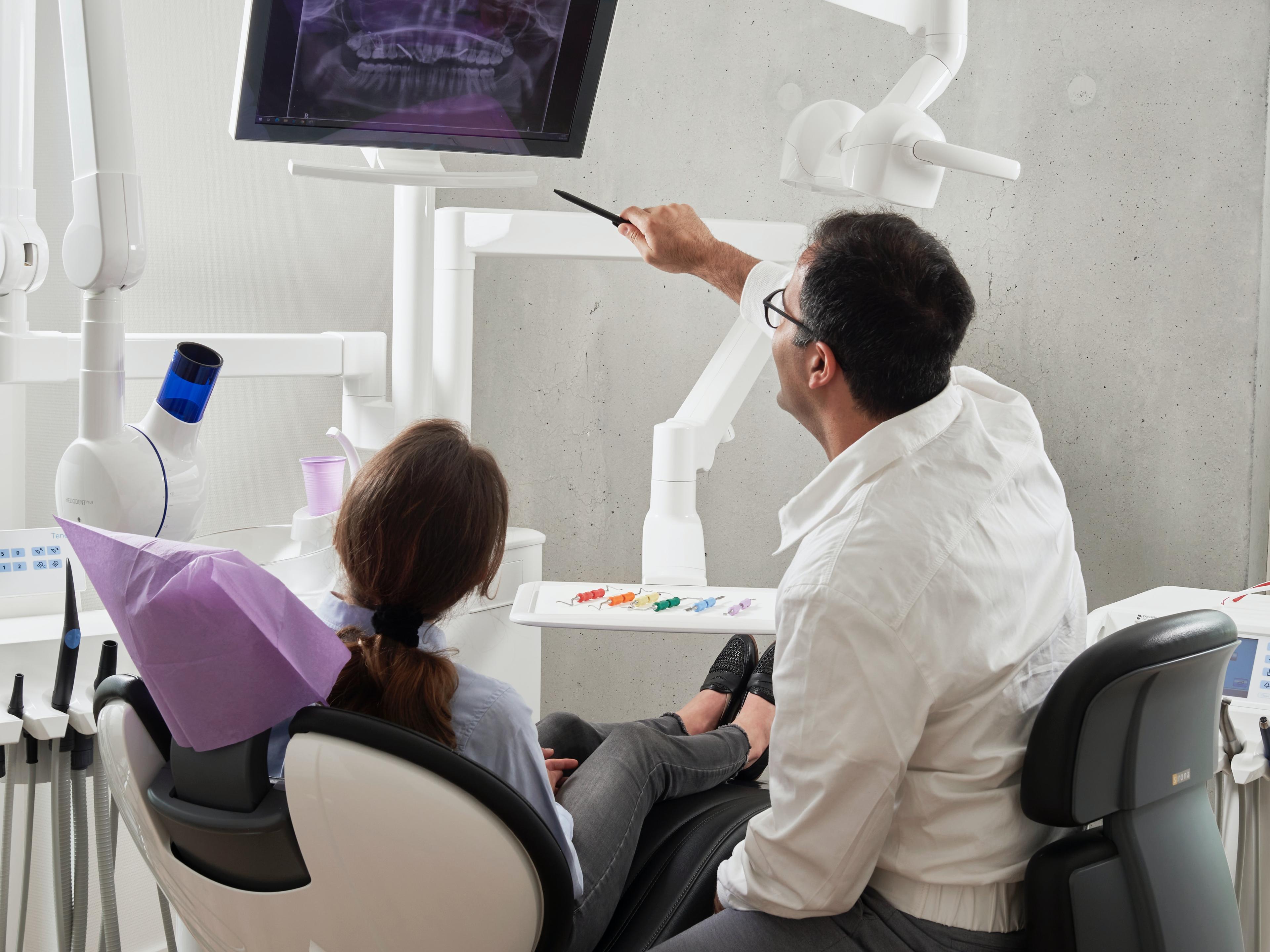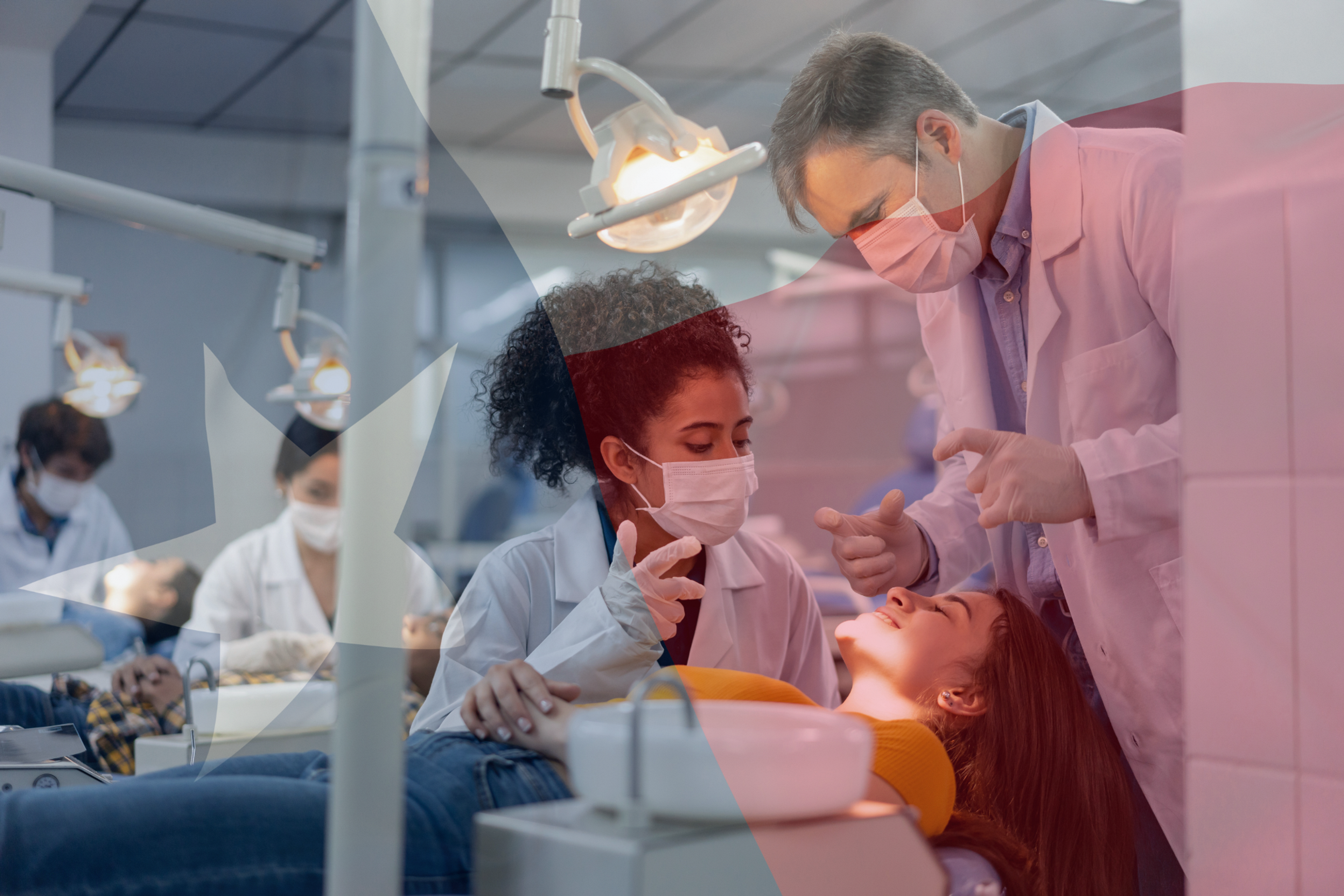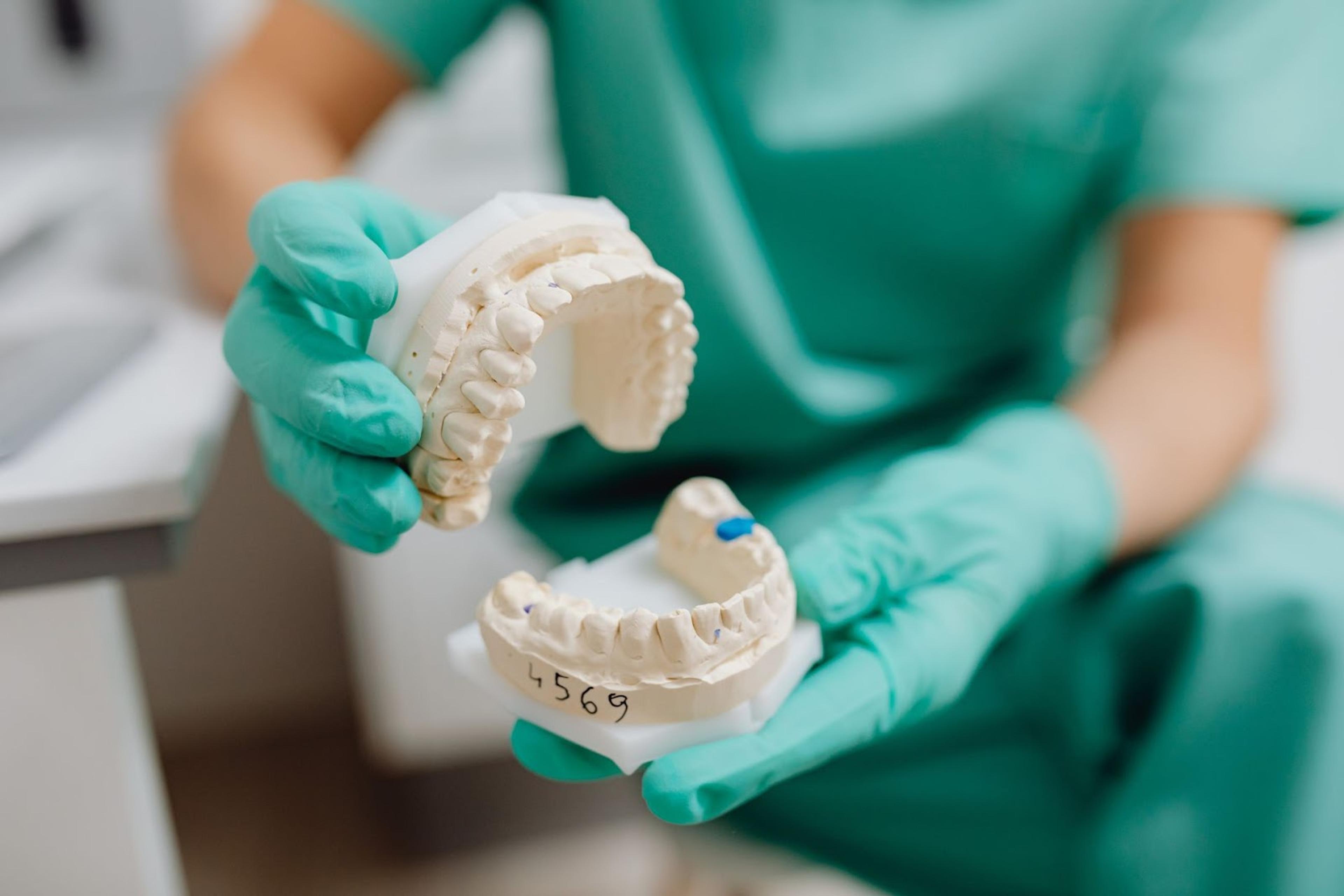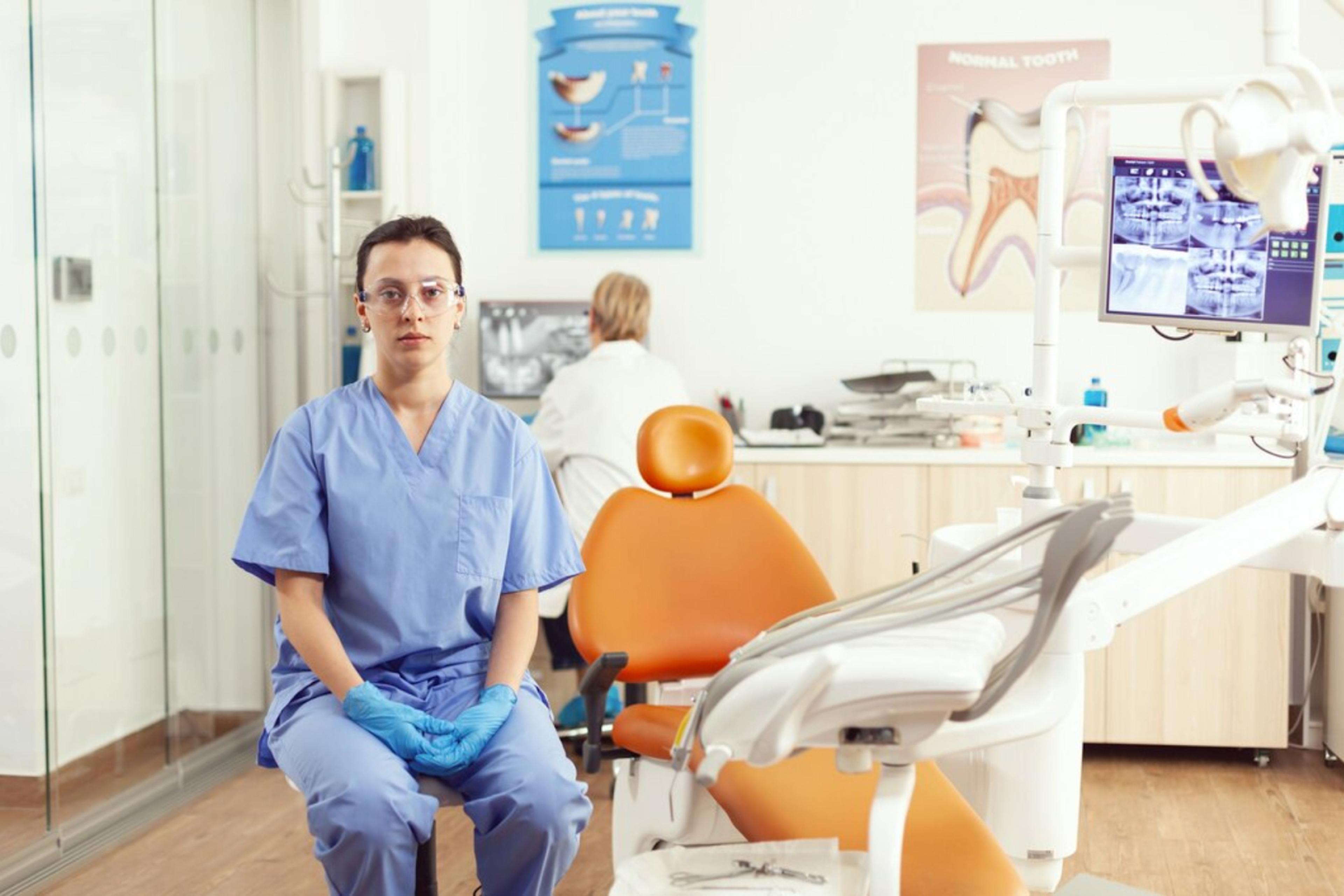Writing a Winning Dental School Personal Statement
Learn the art of crafting an irresistible personal statement, a key element in the dental school application process. Discover the essential steps and techniques to create a captivating narrative that impresses admissions committees and showcases your unique qualities and aspirations.
Posted June 20, 2025

Table of Contents
If you're planning on applying to dental school, then you'll need to have a strong and compelling personal statement. Not only is this statement your chance to highlight your unique qualities and experiences as they relate to dentistry, but it's also a way to demonstrate your passion for the field and your dedication to pursuing a career in dentistry. In this article, we'll be discussing what it takes to write a winning dental school personal statement and how to make your application stand out.
An Introduction to Crafting a Compelling Dental School Personal Statement
First things first, let's start with the basics. Your personal statement is a one-page essay in which you have the chance to tell the admissions committee who you are and why you want to pursue a career in dentistry. This essay is a critical part of your dental school application and will be evaluated alongside your academic record, letters of recommendation, and any other supplemental materials.
When crafting your personal statement, it's important to keep in mind that the admissions committee is looking for more than just a list of your accomplishments and experiences. They want to see your personality shine through and get a sense of your passion for dentistry. This is your opportunity to showcase your unique perspective and explain how your experiences have led you to pursue a career in dentistry.
It's also important to remember that your personal statement should be well-written and free of errors. Take the time to proofread and edit your essay, and consider having someone else read it over as well. A polished and professional personal statement can make a big difference in the eyes of the admissions committee.
The Purpose of Your Personal Statement
Its purpose is to demonstrate to the admissions committee that you have the qualities and experiences necessary to succeed in dental school and in a career as a dentist. You should use this essay to showcase your personal attributes, your relevant experiences, and your passion for the field of dentistry.
It is important to note that your personal statement should not simply be a list of your achievements and experiences. Admissions committees are looking for applicants who can reflect on their experiences and demonstrate how they have grown and developed as a result. Your personal statement should tell a story about who you are and why you are passionate about pursuing a career in dentistry. It should also highlight any unique perspectives or experiences that you bring to the table, such as a background in a related field or a commitment to serving underserved communities.
How to Identify Your Unique Qualities and Experiences to Highlight
To stand out in your application, you'll need to highlight your unique qualities and experiences. Think about what sets you apart from other applicants and consider how those qualities or experiences demonstrate your potential as a dental student and future dentist. Brainstorming these qualities can help you craft a more impactful and memorable essay.
One way to identify your unique qualities and experiences is to reflect on your personal and professional background. Consider your upbringing, cultural heritage, and life experiences that have shaped your values and perspectives. These can provide insight into your character and motivations for pursuing a career in dentistry.
Another approach is to think about your academic and extracurricular achievements. What have you accomplished that demonstrates your leadership, teamwork, or problem-solving skills? How have you contributed to your community or made a positive impact on others? These experiences can showcase your potential as a well-rounded and compassionate dental professional.
Expert Tips for Crafting a Personal Statement Introduction That Stands Out
Your introduction is your first, and sometimes only, chance to hook the reader. In just a few sentences, you need to show the admissions committee that your story is worth their attention. Here’s how to do that effectively:
1. Lead with a specific moment, not a general interest.
Generic openings like “I’ve always wanted to help people” won’t cut it. Instead, drop the reader into a concrete, vivid moment that sparked or deepened your interest in dentistry. Think: the time you shadowed a dentist and noticed how they calmed a nervous patient, or when you helped a family member navigate a dental emergency. Admissions officers are reading hundreds of essays that's why your story needs to feel real and personal from the start.
2. Avoid quotes unless they directly tie to your experience.
Starting with someone else’s words can feel impersonal unless the quote is tightly connected to your journey. If you do use one, immediately follow it with your own perspective or experience—make it about you, not the quote.
3. Consider starting with a “why now” moment.
Some of the strongest intros don’t go back to childhood, they zoom in on a recent, meaningful experience that crystallized your desire to pursue dentistry. This keeps your statement focused and forward-looking, which schools appreciate.
4. Use a question or stat only if it’s surprising and personal.
Asking a question or citing a data point can work, but only if it leads straight into your unique viewpoint or motivation. For example, referencing the disparity in oral healthcare access in rural communities works best when followed by your direct connection to that issue.
5. Cut the filler! Every word should build momentum.
Skip vague statements about passion or dedication unless you show them through action. Your goal is to immediately establish voice, purpose, and direction so the reader knows they’re in good hands for the rest of the essay.
Key Elements to Include in the Body of Your Dental School Personal Statement
Your body should include information about your relevant experiences and how they helped you develop the skills that are essential for success in dentistry. You should also discuss your academic background, specifically any science courses that you have taken, as these are highly relevant to your dental education. It is also important to discuss any extracurricular activities that demonstrate your various skills and qualities.
In addition to discussing your experiences, academic background, and extracurricular activities, it is important to highlight your motivation for pursuing a career in dentistry. This can include personal experiences that sparked your interest in the field, as well as your long-term career goals and how dentistry fits into those goals.
Another important element to include in your personal statement is your understanding of the challenges and responsibilities that come with being a dentist. This can include discussing the importance of patient care, the need for strong communication skills, and the ability to work well under pressure. By demonstrating your understanding of these challenges, you can show admissions committees that you are prepared for the rigors of dental school and a career in dentistry.
The Importance of Authenticity
It is important to be authentic and honest in your personal statement. Do not try to create a persona or present any inaccurate information. Admissions committees are experts at gauging authenticity, and any deception can be highly detrimental to your application. Write from your heart and keep in mind that the purpose of your personal statement is to allow the committee to know you better.
One way to ensure authenticity in your personal statement is to reflect on your personal experiences and how they have shaped your desire to pursue dentistry. Share your unique story and highlight the qualities that make you a strong candidate for dental school. This can include your passion for helping others, your attention to detail, or your ability to work well under pressure.
Additionally, it is important to tailor your personal statement to the specific dental schools you are applying to. Research each school's mission statement and values, and incorporate them into your writing. This shows that you have done your homework and are genuinely interested in attending that particular school.
Real Examples of How to Show Passion for Dentistry in Your Personal Statement
Saying you’re passionate about dentistry isn’t enough—you need to show it through real experiences, insights, and actions that demonstrate your commitment. Here are a few strong ways to do that, with example snippets to guide your thinking:
1. Use a patient-centered moment that left a lasting impression.
“I’ll never forget the 8-year-old boy who walked into the free dental clinic trembling and refusing to open his mouth. By the end of the visit, he was smiling, holding a toothbrush, and asking when he could come back. That day cemented my desire to work in pediatric dentistry—where trust matters as much as technique.”
2. Highlight how academic or research interests connect to your goals.
“My microbiology research on antibiotic-resistant bacteria deepened my interest in periodontology. Understanding the microscopic causes of gum disease made me realize how vital preventative care is—and how dentistry merges science with hands-on healing.”
3. Reflect on how a personal or family experience sparked your interest.
“Growing up in a rural community with limited dental access, I watched my grandfather lose all his teeth before age 60. That experience motivated me to volunteer at mobile dental clinics—and now drives my goal to expand care in underserved areas.”
4. Describe how shadowing or clinical work shaped your understanding of the field.
“Shadowing an oral surgeon, I saw how precision and calm under pressure can change lives—like during a complex extraction on a nervous patient. That experience made me fall in love with the mix of technical skill, human connection, and impact in dentistry.”
5. Tie your passion to a specific path within the field.
“What fascinates me most about orthodontics is how it affects confidence as much as alignment. During my internship, I saw teens go from hiding their smiles to lighting up a room. That emotional transformation is what I hope to be part of every day as an orthodontist.”
Common Mistakes to Avoid in Writing Your Dental School Personal Statement
There are some common mistakes that can significantly decrease the quality of your personal statement. One of these mistakes is writing in a generic way without discussing your unique experiences. Another is writing a statement that focuses solely on your academic background without demonstrating your qualities and experiences of relevance to dentistry. You should also avoid writing personal statements that are too long or too short, making sure to follow the specified guidelines.
How to Edit and Revise Your Dental School Personal Statement for Maximum Impact
After you have finished your first draft, it is highly recommended to take the time to edit and revise your personal statement. One essential tip is to take a break before starting to revise so that you can look at your personal statement with fresh eyes. As you revise, ensure that your statement is clear, concise, and effectively conveys your message. You may also want to get feedback from friends, family, or professors as well as use online resources such as grammar checking tools.
Tips for Tailoring Your Dental School Personal Statement to Specific Programs or Schools
An effective way to make your personal statement stand out is to tailor it to the specific dental school programs you are applying to. Research and find information about each school's curriculum, facilities, and mission statements, for example, and choose to include information that shows your interest and compatibility with the program specifically. This approach will show the committee that you are serious about attending their specific program and that you've done your homework.
Strategies for Standing Out Among a Pool of Competitive Applicants
Standing out in a pool of competitive applicants can be challenging, but it is vital to remember that if you stay authentic and communicate your passion for dentistry effectively, you have a good chance of making a lasting impression. Additionally, take the time to review what you wrote before making the final submission, use the appropriate formatting guidelines, and be certain you have represented yourself and your aspirations as holistically and accurately as possible.
Make the Most of Supplemental Essays and Interviews as Part of the Application Process
In addition to your personal statement, there may be supplemental essays or interviews that are included as part of the dental school application process. It is essential to take these components seriously as they can play a significant role in the final decision. Be sure to prepare for these essays and interviews carefully, using tips and tools online and even seeking advice from current dental students or former colleagues. Remember, by taking advantage of all aspects of the application process, you can make your candidacy stand out.
Navigate the Admissions Process and What Comes Next After Submitting Your Personal Statement
The admissions process can be stressful, but always remember why you're applying and what your end goal is. It is important to stay organized throughout the application process, keeping track of deadlines and all required documents. After submitting, you can breathe easy, awaiting a decision. However, if you're putting all your eggs in one basket, you may want to consider applying to multiple dental schools. Knowing what to expect and what you'll need to do can help put your mind at ease and prepare you for whatever may come next.
Final Thoughts
Writing a winning dental school personal statement takes time, effort, and commitment. By keeping the tips mentioned in this article in mind and staying true to yourself and your motivations, you will have an excellent chance of getting admitted to the dental school of your choice, and ultimately following the path you envisioned for your professional life. Good luck!
Work 1:1 with a top dental school admissions coach to build a statement that gets you in. Find your coach here.
Take a look at these resources to take your application to the next level:
- How to Prepare for Your Dental School Interviews
- How to Get Into Dental School: Essential Tips and Guidelines
- How to Get Volunteer Hours for Dental School Applications
- University of the Pacific Dental School: Application Requirements and How to Get In
- How to Become a Dentist: Application, Degree Programs, FAQs
- The Complete Guide to the Dental School Application
FAQs
Is a 1000 word personal statement too long?
- The common word limit for personal statements is typically one thousand words, or roughly two single-spaced pages of size-twelve-font type. Things you can cut: Information repeated elsewhere (e.g., in a supplemental essay) Information that rehashes what is said on a C.V.
How to end dentistry personal statement?
- Your dentistry conclusion should be brief - only one or two lines. Don't save your best point for now - you want to mention that earlier and expand on it. Instead, use this as an opportunity to tie your statement together and conclude with why you are motivated and suitable for a career in dentistry.
Is 700 words enough for a personal statement?
- Set aside enough time: Although personal statements are generally short in length (approx. 700 words; 1-2 pages), give yourself ample time to write a strong, well-written statement. It takes more time than you think to develop a final draft for submission.
What is the layout of a dentistry personal statement?
- The best structure for a dentistry personal statement generally follows a chronological or thematic order. A chronological structure presents your experiences in the order in which they occurred, while a thematic structure groups your experiences according to themes or topics related to dentistry.
What is a strong opening sentence?
- Start with the chase. A good hook might also be a question or a claim—anything that will elicit an emotional response from a reader. Think about it this way: a good opening sentence is the thing you don't think you can say, but you still want to say. Like, “This book will change your life.”











